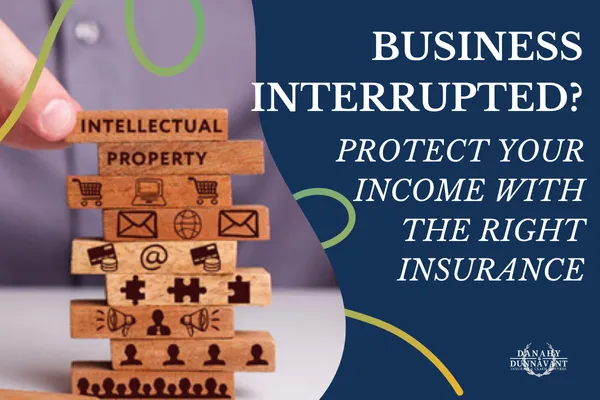
Business Interruption Insurance Claims: What Florida Business Owners Must Know
Florida’s weather is both a blessing and a challenge. While it brings tourism and commerce, it also brings frequent hurricanes and natural disasters. These events can force businesses to shut down for days, weeks, or even months. For business owners, this isn’t just an inconvenience, it's a financial crisis.
That’s where business interruption insurance claims come into play. This coverage can be the difference between recovering or going under after a disaster. If you're a business owner in Florida, understanding the details of your policy, the claims process, and your legal rights is essential for staying afloat.
What is Business Interruption Insurance?
Business interruption insurance (BII) is designed to compensate businesses for income lost when operations are halted due to a covered event, such as a hurricane, fire, or vandalism. This is not to be confused with property insurance, which only covers physical damage to assets.
Coverage Typically Includes:
Lost net income during the downtime
Operating expenses like rent and utilities
Employee wages
Temporary relocation costs
Extra expenses incurred to keep the business running
Common Exclusions:
Damage due to floods (unless flood insurance is added)
Pandemic-related losses (often excluded post-COVID
Undocumented income or losses
According to the Insurance Information Institute, BII policies are often part of a broader Florida business insurance package, but the terms can vary greatly between providers.

Why Florida Business Owners Face Unique Risks
Florida’s geography makes it a hotspot for hurricanes, floods, and other weather-related disasters. According to the Florida Office of Insurance Regulation, the state sees one of the highest numbers of natural disaster insurance claims annually.
Unique Challenges Include:
High Premiums: Due to the elevated risk, many insurers charge more for commercial property and BII policies in Florida.
Frequent Natural Disasters: Florida averages 1-2 major hurricanes every season, significantly impacting business income loss.
Regulatory Complexity: Florida has unique legal rules that can both protect and complicate the claims process for business owners.
What Does Business Interruption Insurance Cover?
Business interruption insurance doesn’t just cover physical damage; it covers the ripple effects that prevent you from doing business.
Coverage May Include:
Loss of revenue during closure
Payroll and lease obligations
Temporary relocation costs
Extra expenses to maintain operations
Scenario Example:
Imagine your bakery in Tampa is forced to shut down for 3 weeks due to power outages caused by a hurricane. Your policy may cover:
Revenue you would have earned
Salaries of employees you continue paying
Cost of renting a temporary kitchen
Step-by-Step Filing Process
Filing a business interruption insurance claim correctly can make all the difference in whether it’s approved or denied.
1. Notify Your Insurer Immediately
Report the business interruption as soon as possible. Delays may affect your eligibility.
2. Document Everything
Take photos of physical damage, maintain income records, and log all business communications.
3. Calculate Business Income Loss
Use your previous financial statements to estimate lost profits.
4. Gather Supporting Documents
Include tax returns, payroll records, lease agreements, and bank statements.
5. Work with Experts
Consult with a public adjuster or a commercial insurance attorney to guide the process. At Danahy & Dunnavant, P.A., we offer free consultations to support you through this process.
What to Do If Your Claim is Denied or Delayed
Insurance companies may deny or delay claims due to incomplete documentation, disputes over policy interpretation, or excluded events.
Common Reasons for Denial:
Claim submitted late
Insufficient documentation of loss
Dispute over the cause of the interruption
Misunderstanding policy exclusions
Steps to Take:
Review the denial letter carefully
Request a detailed explanation
Submit additional documentation
Hire a legal professional specializing in Florida business insurance disputes like Danahy & Dunnavant P.A.
According to the Florida Bar Association, many business owners successfully appeal claim denials with the help of legal counsel.
Preparation is the best defense. Don’t wait for disaster to strike before evaluating your insurance and continuity plans.
Tips to Prepare:
Review your insurance policy annually
Make sure hurricane and flood coverage are included if needed
Digitize financial and operational records
Easier to access post-disaster
Establish a disaster recovery plan
Includes employee contact lists, remote work solutions, and vendor communication protocols
Conduct a risk assessment
Evaluate what scenarios are most likely to impact your business
Checklists and planning guides are available through the Federal Emergency Management Agency (FEMA) and SBA disaster readiness tools.
Don’t Wait for Disaster to Strike Protect Your Florida Business Today!
Make sure your business is ready to weather the next storm. Review your business interruption insurance coverage now and speak with a licensed Florida insurance expert to ensure you’re fully protected against income loss, hurricane damage, and operational downtime. Contact us now for a no-cost consultation.
Frequently Asked Questions
1. What kind of help can I get with a property insurance claim?
You can get assistance with reviewing your policy, documenting damages, filing your claim properly, and understanding your rights throughout the process.
2.When should I seek help with a property insurance claim?
If your claim is delayed, denied, or underpaid—or you're unsure how to proceed—it’s a good idea to get support early to avoid mistakes and protect your claim.
3. Can you help if my property insurance claim was denied?
Yes. We can help you understand why it was denied, gather additional documentation, and explore your options for challenging the decision.
4. What if the property damage is affecting my home or business?
We can assist in documenting the impact of the damage, including temporary living costs or business interruption, to help ensure you're properly compensated.
